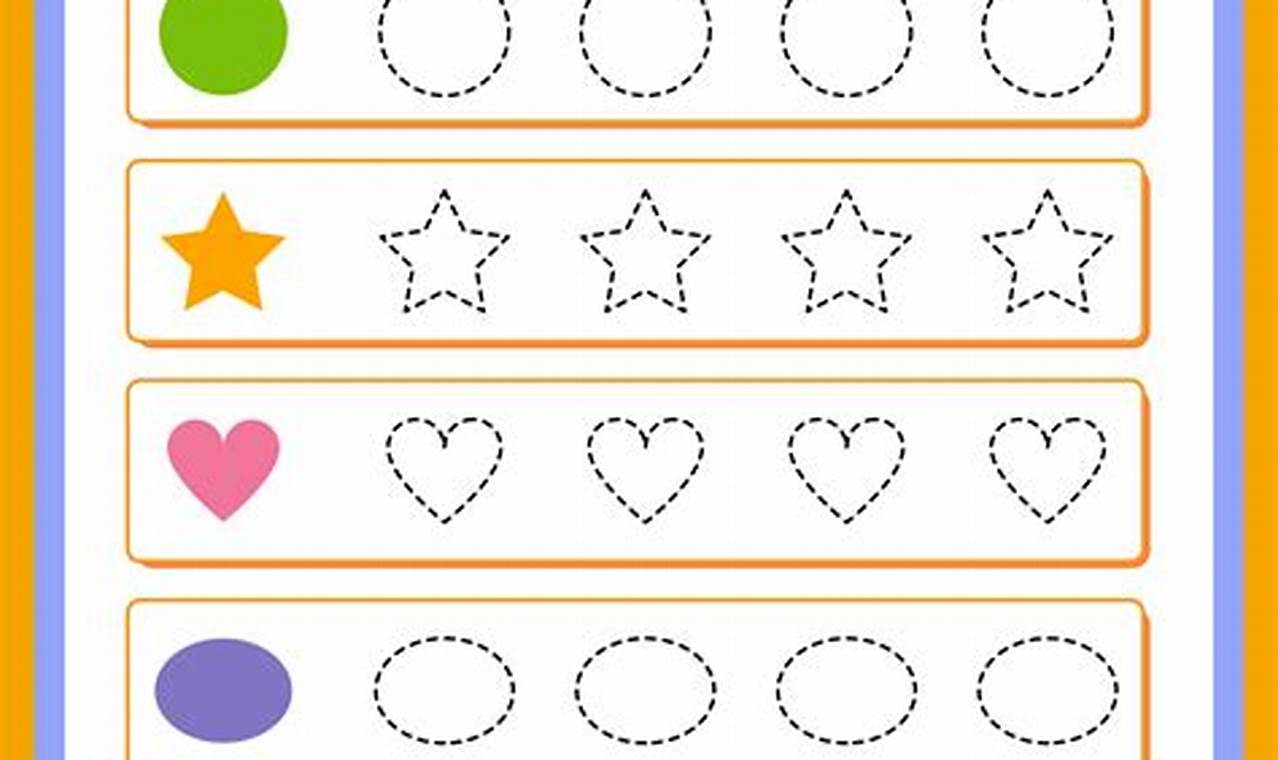Early math skills are foundational for academic success, and developing fine motor skills is essential for handwriting and overall dexterity. Worksheets focusing on tracing activities provide a playful and effective method to integrate these crucial skills, making learning enjoyable and building a solid base for future mathematical understanding. Specifically, fun tracing activities for self-directed math study offer a unique way for children to actively engage with mathematical concepts.
The primary benefit of engaging with fun tracing activities for self-directed math study lies in the development of pre-writing skills and mathematical recognition. These worksheets enhance hand-eye coordination, improve pencil grip, and promote visual discrimination. By tracing numbers, shapes, and patterns, children strengthen their fine motor skills, which are necessary for writing legibly and performing various everyday tasks. Moreover, consistent practice with these activities fosters concentration and attention to detail.
These worksheets typically feature a variety of engaging content. They often include tracing lines of different types (straight, curved, dotted) to improve hand control. The core often focuses on tracing numbers (0-9), basic shapes (circles, squares, triangles), and simple mathematical patterns. Some worksheets might also incorporate fun illustrations to add visual appeal and maintain children’s interest. Bold, clear lines are essential to guide young learners effectively, ensuring that the tracing experience is successful and confidence-boosting. Worksheets designed for fun tracing activities for self-directed math study may also feature incremental introduction of complexity, beginning with larger shapes and gradually progressing to finer, more intricate patterns.
To use the worksheet effectively, begin by providing a comfortable and distraction-free environment. Encourage the child to hold the pencil correctly, using a tripod grip. Start with the easiest tracing exercises, allowing the child to gain confidence and momentum. Offer gentle guidance if needed, but avoid taking over the tracing. Encourage slow and deliberate movements, focusing on accuracy rather than speed. Break the worksheet into smaller sections, allowing for short breaks to prevent fatigue. Positive reinforcement and praise are crucial to motivate the child and create a positive learning experience when doing fun tracing activities for self-directed math study.
To further enhance learning, complement these tracing worksheets with other engaging activities. Kidtraces.com offers a variety of related worksheets that focus on different aspects of early math and fine motor skill development. Educational games that involve number recognition and shape sorting can also be beneficial. Consider incorporating hands-on activities, such as building shapes with blocks or counting objects around the house, to reinforce the concepts learned through tracing. Daily activities that promote fine motor skills, like playing with playdough or stringing beads, can also contribute to overall development related to fun tracing activities for self-directed math study.
In conclusion, fun tracing activities for self-directed math study offer a valuable and engaging tool for developing essential pre-writing and early math skills. By providing a structured and enjoyable learning experience, these worksheets help children build confidence, improve hand-eye coordination, and lay a solid foundation for future academic success. Download and try the worksheet today to see the positive impact it can have on a child’s learning journey. Remember to explore more free worksheets on Kidtraces.com to support continuous learning and skill development.
